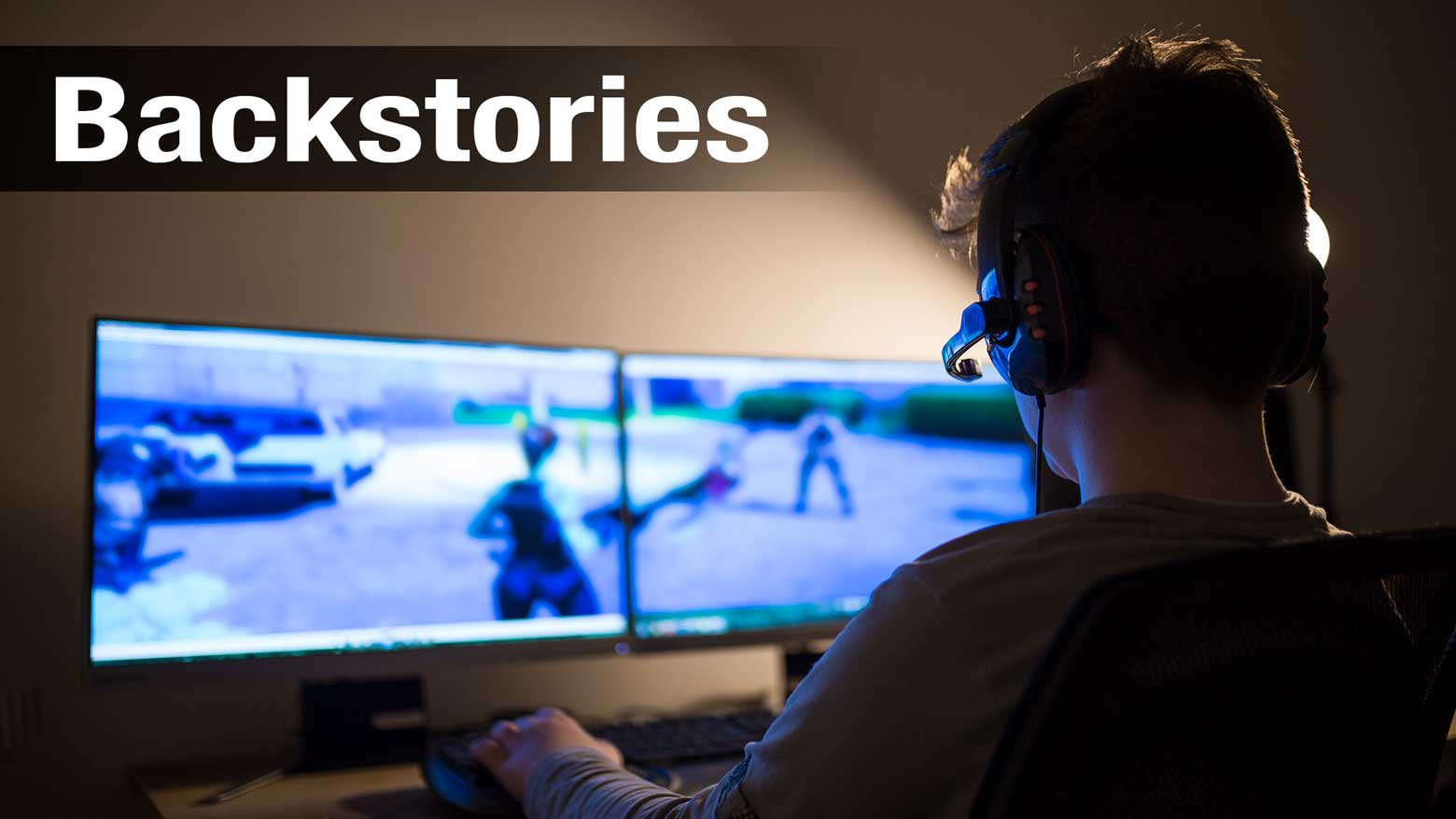I want my life back
A 28-year-old man in Kanagawa Prefecture is receiving counseling for the disorder at a medical institution.
Kenichi Takizawa says he got absorbed in video games after having interpersonal relationship problems at work.
He said he started gaming because he was sick of real life, and that he became immersed in games after he quit his job.
He said he sometimes played continuously for days, going without meals and sleep. He said there were times when he didn't know whether he was asleep or awake, and that at the lowest point, he started hallucinating.
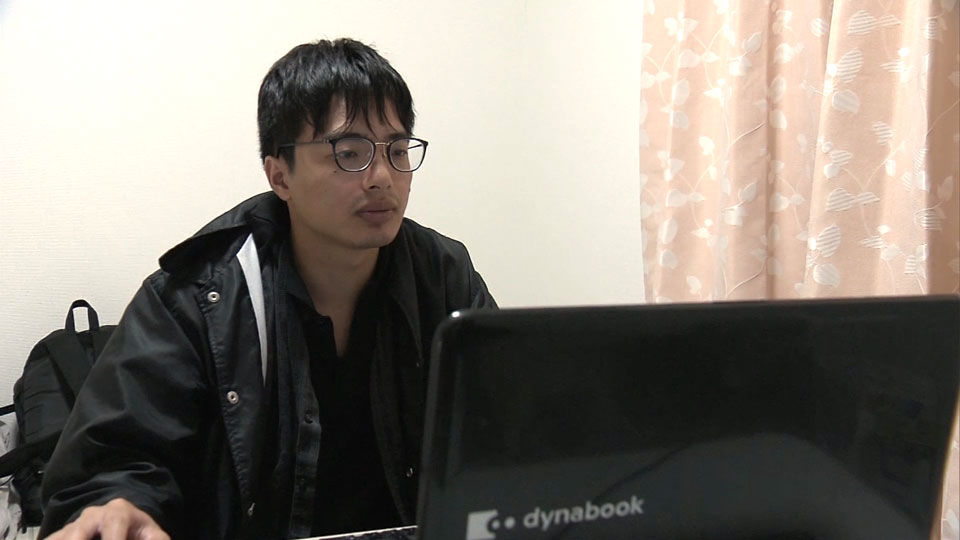
As his health deteriorated he became irritable and would intentionally break things at home. His family arranged for him to get treatment at a medical facility. He has since cut back on the time he spends gaming and is looking for a new job.
"I haven't got rid of the addiction completely and sometimes feel like I can't control myself," he said. "I would really like to go back to my former life as soon as possible."
Tendencies surveyed
The survey polled more than 4,400 people aged 10 to 29 who said they had played video games during the past year.
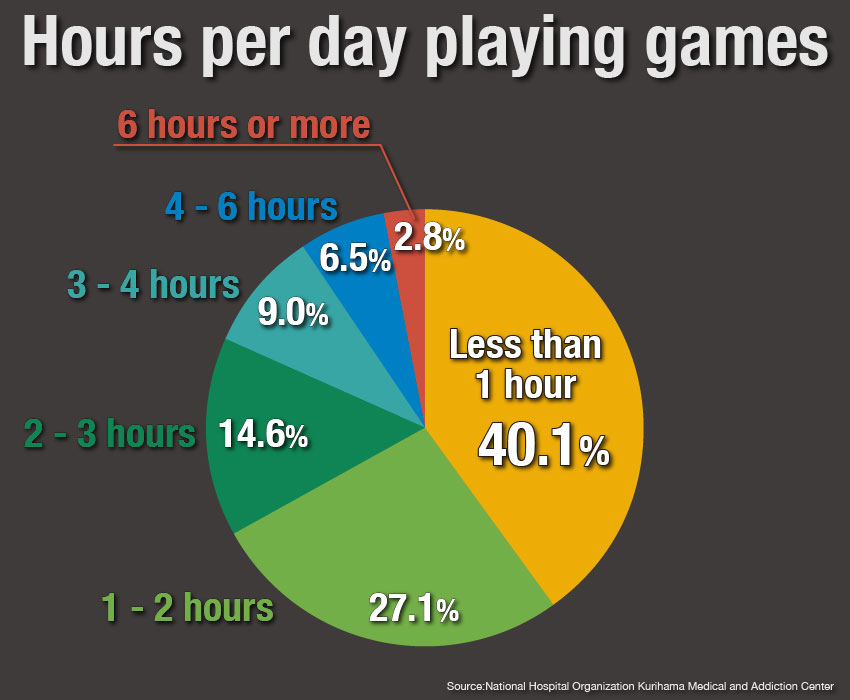
The largest number of respondents, 40.1 percent, said they spent less than one hour a day on games during the work week.
This was followed by 27.1 percent of respondents, who said they played one to two hours per day, 14.6 percent who said they played two to three hours per day and 2.8 percent who played for six hours or more, with the result that the longer people played, the more it disrupted their lives.
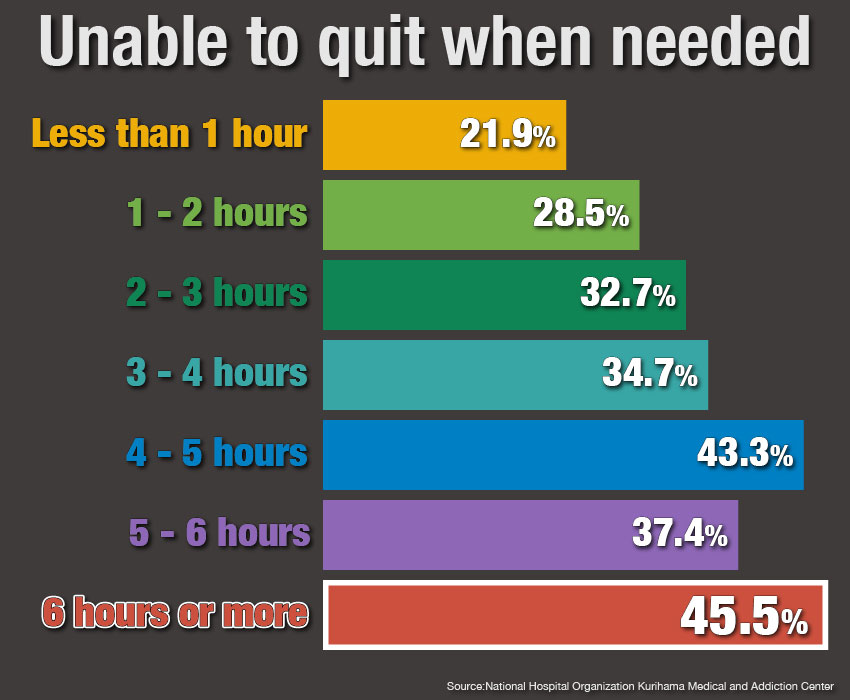
Of those playing less than one hour a day, 21.9 percent said they couldn't quit when they needed to, compared to 45.5 percent for those playing six hours or more.
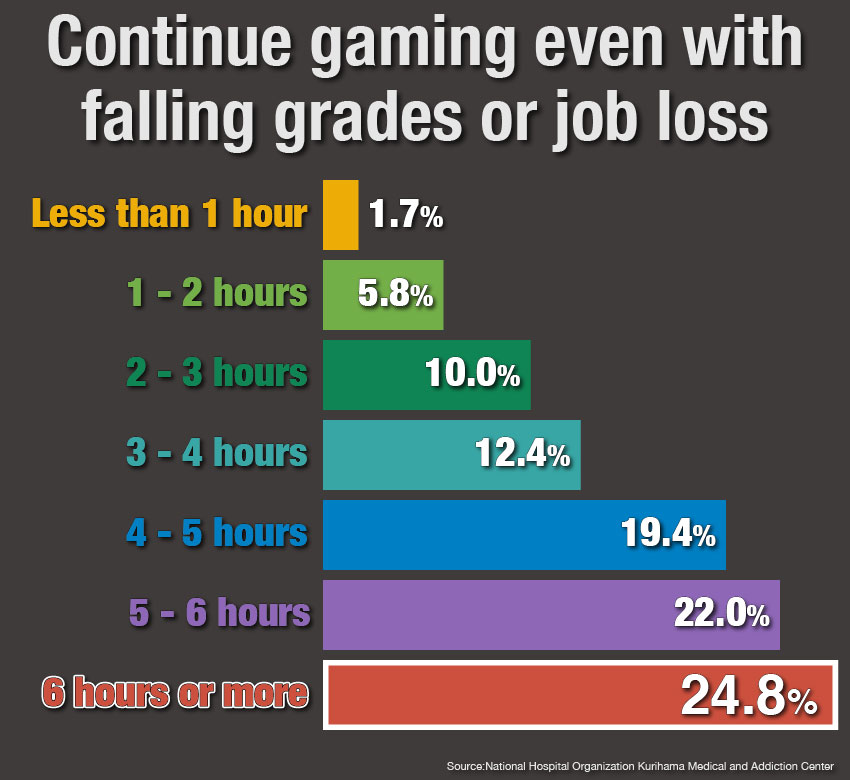
In the one hour per day group, 1.7 percent said they continued gaming even though their grades were falling or they had lost their job, compared to 24.8 percent of those playing six hours or more.
A problem for all of society
The survey by the Kurihama Medical and Addiction Center was supervised by its chief, Susumu Higuchi. He says few guidelines exist for the treatment of gaming addiction, so he hopes the survey results help in devising more effective treatments.
"The number of people seeking treatment for gaming addiction has risen sharply," he said, adding that the problem is becoming more serious.
Higuchi described the many effects of addiction on people's health. "They gradually lose physical strength because of sleep deprivation and irregular meals, in addition to the lack of physical activity," he said. "Their bone density decreases and they feel pain."
He cited reports from overseas of gamers suffering from so-called "economy class syndrome," where blood clots form in the veins after sitting too long in the same position. It's condition that can result in death.

The World Health Organization in May last year recognized the addiction as "gaming disorder" and urged countries to address it as a serious social problem.
Higuchi says the entire society, including those in the gaming business, need to take steps to prevent or curb addictive playing.
IT industry acting on smartphone addiction
IT firms are already taking steps to reduce young users' reliance on smartphones, especially children.
Apple introduced new features in its iPhone operating system several years ago, that calculate daily screen time for users so they can set limits on game apps and social media use. The new tools also give parents access to data on their children's usage.
Google has equipped its Android operating system with similar tools.
Gaming industry survey
The Computer Entertainment Supplier's Association (CESA), with more than 190 gaming industry firms and organizations in Japan as members, is urging caution and distributing leaflets at industry events to help young users play safely.
It encourages parents to set rules for children about contents that charge fees, and when they can play games. It says parents can limit children's access by presetting a time frame and length of time for use.
CESA along with other gaming industry groups set up a seven-member expert panel after the WHO officially recognized gaming disorder. The panel will conduct a nationwide survey of gamers as early as next fiscal year with the results providing a basis for new safety measures.
